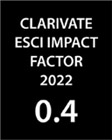Regionalism in Hungary from an empirical perspective
DOI:
https://doi.org/10.17649/TET.30.1.2731Keywords:
regionalism, regionalisation, Hungary, transition economy, EU accessionAbstract
More than two decades after the change of the political system, with the EU accession about 12 years ago, Hungarian regionalism and regionalisation processes deserve some attention. The objective of the study is the presentation of the subsequent structural, institutional and regulatory changes from the pre-accession programmes through the first, half programming period, decentralisation initiatives and the Competitiveness Pole programme to the regional policy of our days, including re-industrialisation and smart specialisation.
Methodologically, the study combines the theoretical background with an empirical, process-based analysis and involves two new elements in addition to the relevant regulatory framework, strategic programming documents and historical facts. The two new examined elements are the main topics of the Falu Város Régió (Village, City, Region) periodical from the first issue in 1994 (as the practical side); and the main topics of the annual conference of the Hungarian Regional Science Association from 2003 (as the academic sector). With regard to the applied character of regional studies, the author examined the relationship of regional science (theory and practice) and the necessity, recognition and difficulties of regionalisation and regionalism in the last 25 years. The terms “Theory and Practice” are referred to in the study as synergistic elements and not as contrary definitions.
The period examined between the Nineties and the present day is divided into three stages as the Age of Heroes (1992–2003); Stabilisation (2004–2011); and Pathfinding (2012–). These periods are described and compared through a set of characteristics, defined by the author. These include territorial processes; legal regulation; policy development; institutional system and frame-work; infrastructural background; human capacities and resources; internationalisation; financial resources; complexity and specialisation; strategic programming; the relationship of theory and practice; and lastly, the importance of determining characteristics. Finally, some conclusions are presented and some recommendations are formulated for the future, without being exhaustive.
The contribution of the study to the state of the art is twofold. Firstly, it provides an overall presentation of the period examined and thus contributes to a better understanding of the processes, especially for the next generation of students and practitioners. Secondly, it can form a sound and inspiring basis for further research, mainly comparative and/or cross-country analysis, in the field of territorial processes of Central and Eastern European countries between 1990 and 2015.
Downloads
Published
How to Cite
Issue
Section
License
Authors wishing to publish in the journal accept the terms and conditions detailed in the LICENSING TERMS.






